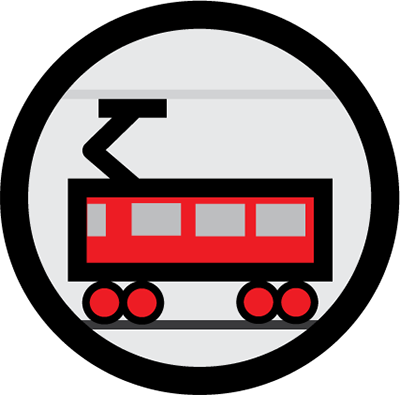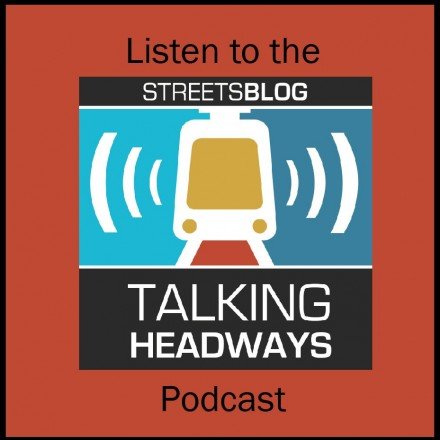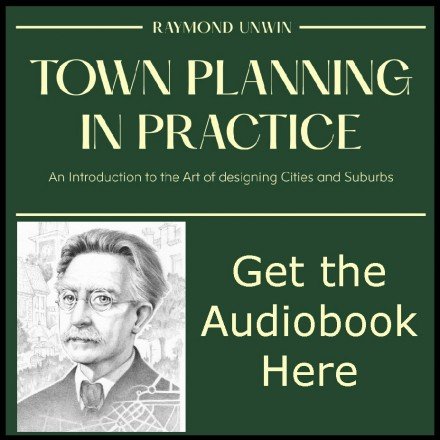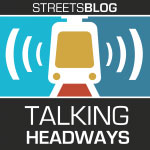(Unedited) Podcast Transcript 409: Congressman Earl Blumenauer
This week we sit down with US Congressman Earl Blumenauer of Oregon’s 3rd District at the Rail~Volution conference in Miami. We chat about the one year anniversary of the infrastructure bill, where we’re at with vision zero, the coming Farm Bill discussion, and the important connections between housing, transportation, and health.
You can find the audio of the show at Streetsblog USA or the hosting archive.
Below is a full unedited transcript of the discussion:
Jeff Wood (1m 23s):
Well, Congressman Earl Blumenauer, welcome to the Talking Headways Podcast.
Congressman Blumenauer (1m 49s):
It’s good to be with you again.
Jeff Wood (1m 50s):
You were on episode 158 back in 2017, and we were in Denver for Rail~Volution. What’s changed?
Congressman Blumenauer (1m 56s):
Well, several things have changed. One is the political landscape has been turned upside down. It’s really sort of sobering, the contention, the controversy, the partisan divide. But the upside is that the work that we were talking about back in 2017 is gaining momentum and traction. We have an administration that is actually committed to being able to tie communities together. They’re, they believe in investing in infrastructure and doing so in a way that’s equitable and low carbon. And last but not least, we have examples that you’ve, in many cases you’ve interviewed principles where these activities have been put into place and show very positive results.
Congressman Blumenauer (2m 42s):
So I think that withstanding the kind of pained political landscape, this is one of the areas that can bring people together, solve problems rather than creating new ones.
Jeff Wood (2m 54s):
There’s been a lot happening, and we’ll get to that in a second. The Railvolution, you’ve been with it since the beginning, the conference, and we’re gonna see a name change soon. I don’t know what the name is. I told them not to tell me, but I’m wondering, what’s your favorite memory of revolution so far since you started? Oh, way back when.
Congressman Blumenauer (3m 10s):
Well, I like what happened in our community where this idea that we brought people together in a little church in northeast Portland and had sort of an obscure planner, architect, Peter Calthorpe, and we started talking about these things in our community. It really took hold, it became mainstream in terms of different ways to organize, to plan, and to bring people together. And I love over the years as we’d gone from community to community where we watch that these principles really have broad application. Every community’s a little different. They do it according to their goals and priorities, but people and the final analysis want to make infrastructure work for people and the power of planning it, right, investing well and engaging people really makes a huge difference.
Congressman Blumenauer (4m 4s):
And so for me, watching over the course of 30 years watching this movement to make communities more livable, go mainstream and expand.
Jeff Wood (4m 14s):
Have you seen an impact of the conference at the federal level? Have you seen any changes in, in policy making or anything along those lines from just people coming to the conference, maybe having meetings, getting together and having discussions? Have you seen any changes from that?
Congressman Blumenauer (4m 27s):
Well, if you scroll through the people who are participating in this conference, you’ll see there are a number of folks with this administration who undertake to develop the principles, building the network of people who speak the language, people who have engaged in infrastructure planning that is more thoughtful and inclusive. I find it really exciting. I’m, there’s gonna be a panel later this morning that has federal participants who are deeply seeped in these principles. They came to the jobs in the administration with experience in diverse communities around the country, and they carry that sense of mission to make the federal government a better partner.
Jeff Wood (5m 12s):
Speaking of federal policy, we’re coming up on the year anniversary of the infrastructure bill. I’m wondering if you have any takeaways from the first year thoughts about what’s happened ever since the bill passed, I guess last November 15th.
Congressman Blumenauer (5m 24s):
Well, I am obviously excited. One of the things I have been working on in Congress for years was to enhance the infrastructure investment. You know, we hadn’t raised the gas tax since 1993. The federal government had resisted actually stepping up and doing adequate funding. We’ve worked with stakeholders, carried this message around the country, agitated internally in Congress, but it’s been a real slow slog. But watching it finally come together, together, having over in total 1.2 billion in terms of the infrastructure bill plus previously program money, this is serious and it is being implemented by an administration that for the first time, since I’ve been in Congress over two decades, we had an administration that was really committed to rebuilding and renewing America.
Congressman Blumenauer (6m 23s):
This has been a sea change and I couldn’t be more delighted.
Jeff Wood (6m 26s):
It’s amazing. I mean, some of the stuff that you introduced into the build, pretty exciting as well. You have a billion dollars for Safe Streets and Roads, 70% increase in funding for bike lanes and sidewalks and user fee pilot projects. I’m curious, do you have a favorite
Congressman Blumenauer (6m 39s):
No, no, no. That’s like, which are your favorite children now? These are, these are priorities we’ve been working on and they all make a difference in terms of being able to get the most out of these investments. I like the historic funding levels for transportation alternatives, you know, the roads and bridges and transit to a certain extent is pretty straightforward. But being able to deal with transportation alternative, the notion of Complete Streets, which has been a priority of mine for years, and I’ve seen it make a difference in the work that I did as Portland’s Commissioner of Public Works. Being able to extend resources to communities across the country to implement that.
Congressman Blumenauer (7m 21s):
You know, the, the notion when we started with Vision Zero was sort of a, you know, kind of a, a fringe concept. It’s, it’s aspirational, but are we really serious? Well, yeah, we’re serious and we’re watching the notion bring forward in communities large and small across the country, that they don’t have to accept the degree of carnage we have on the highway and making our facilities reinforce people in the community, not just vehicles. I think this is revolutionary.
Jeff Wood (7m 54s):
I wanted to ask you where Vision Zero is these days. You mentioned the carnage 40,000 plus people a year die in, in collisions. I’m curious where we’re at at Vision Zero and and how we can get to a better place.
Congressman Blumenauer (8m 6s):
Well, it is codified in terms of the work that we’ve done. It’s an area that’s eligible for investment. More and more attention is being given to what local communities are doing to manage the infrastructure to achieve that goal. How we deal with street design, what we do with speeds, the public perception of what they’re willing to accept. You know, 30 years ago, we have an epidemic of deaths due to drunk drivers on the road. Well, we have watched a revolution take place in terms of engineering, in terms of enforcement education, and the level of deaths from drunk driving has dropped precipitously.
Congressman Blumenauer (8m 52s):
There’s no reason we can’t do the same with motor vehicles, bikes, and pedestrians.
Jeff Wood (8m 58s):
Is there something more we can do with vehicles? It feels like there’s been a lot of research lately about, you know, the vehicle sizes, the the speeds. There’s been a discussion about putting speed limiters on vehicles. I’m wondering if there’s something that we’re, we’re not doing that we should be doing in that realm. A
Congressman Blumenauer (9m 12s):
Whole host of things. Part of it is we are making these behemoth large vehicles that really can’t see pedestrians. We are sadly still committed to the free flow of traffic. We’re slow to adopt principles, for instance, in terms of scaling down the size of the roadway narrowing, putting street trees, things that change the visual signals that people get. These are principles that work. We just have not adapted it. Last but not least, the notion that we are going to place a premium, having the Vision Zero program, we’re gonna place a premium on reducing these unnecessary traffic deaths.
Congressman Blumenauer (10m 0s):
Because in a, in a sense they’re, these aren’t accidents. They are often the result of negligent design in attention to detail. The way that roadways are created, the lack of emphasis on the people in this space results in more and more folks in harm’s way, and we don’t have to accept that.
Jeff Wood (10m 22s):
I think that’s one of the things that’s frustrating to me is the focus on vehicular, you know, throughput and those types of things instead of on people. And it’s frustrating to see, you know, it depends on your state D o t on whether, you know, somebody goes through with that or not in terms of the design, but I think that’s one of the most frustrating things.
Congressman Blumenauer (10m 38s):
Absolutely. And and the notion of what is the objective that you have with the local transportation system? It ought to be access. It ought to be making it easier for people to do what they need to do. Increasing the speeds going through a community actually does not enhance the quality of life. It doesn’t help the commercial activity on the street in terms of people being sort of trapped in this notion of accelerating the movement, moving faster. It’s not just more dangerous, but it SAPs the life of the street activity, pedestrian experience, commercial vibrancy.
Congressman Blumenauer (11m 24s):
It is a very limited vision of what you want communities to wear. It’s been fascinating for me watching the work that I’ve been doing in the city of Portland dealing with cycling. It has taken hold. We have the highest percentage of the mode split for cyclists of any major city in America. But there’s a different mindset that is taken. There are neighborhoods where the mode split is over 10%. We have have completely changed the view that people have of number of streets that we have calmed. We have over 160 businesses that have requested removing parking in front of that bookstore or that pub or that flora shop and replace it with bike parking.
Congressman Blumenauer (12m 14s):
When I was commission of public works, you know, people fought for the goal of having an empty parking space in front of their business, but was never empty for long. But that is a pretty limited use of that right of way. Being able to put eight or 10 bicycles there, the cyclist is more likely to actually shop. It really is a different signal to people who live and recreate and participate in the commercial activities. And you can see that mindset take place. It is really adds to the vitality of those neighborhoods and that’s something we can get anywhere in the country.
Jeff Wood (12m 58s):
There was, and this is in Canada, but in Toronto there was some research that came out recently showing that, you know, during the pandemic they replaced a lot of the parking spaces with Streeties and, and restaurants and things like that, and they looked at how much money they could get from the parking. And I think it was like, don’t quote me on this specifically, but it was, it was, you know, under $5 million and what they got from the restaurants in terms of like the value out of, of what the restaurants generated in terms of economic movement was like 187 million or something like that. So a huge change in what you can do with the parking space. The street level land in cities is very valuable and useful in other ways.
Congressman Blumenauer (13m 33s):
Yeah, and this is a, a change in mindset that we’re looking at the value of the curb. I happen to be a proponent of paid parking. It shouldn’t be free, but there are higher and better uses than just collecting rent for an hour or two of a vehicle. You’ve mentioned examples that we’ve seen by opening up the street spaces for commercial activities, for restaurants and whatnot. What we’ve seen in New York where they’ve captured areas where they’ve turned part of the street back to people and it changes the dynamic dramatically and it helps the surrounding areas, both in terms of residential and commercial.
Congressman Blumenauer (14m 19s):
This is a tremendous opportunity for us to look at millions and millions of acres that are confined to activities that relate to the automobile the right away, moving it through as quickly as possible, or storing them for free on the street and it’s high time that that be changed.
Jeff Wood (14m 39s):
Along those same lines, you’ve introduced legislation about a parking cashout. Can you tell me a little bit more about that?
Congressman Blumenauer (14m 45s):
Absolutely. Well, we are looking at continued discrimination against people who are not single occupant vehicle commuters. The federal government permits a tax free benefit for employer provided parking. Well, what we are proposing is that the individual commuter the employee be given the choice of whether they want paid parking or they’d rather have the cash value of that. For many people, there are opportunities to be able to be more flexible that that some days of the week they’ve got the carpool for soccer, but other days they don’t need to be driving.
Congressman Blumenauer (15m 36s):
They could take transit, they could walk or bike. People who use alternative transportation, our penalized, it’s either free paid parking or nothing. Our concept here is to just give people the value of that free parking and then allow them to spend it as they will on lift, on bike share on their own cycling activities. Transit, give people control over that money in ways that makes a difference for them. If we were to do that, it would give people the power to make the choices that are better for them, not just forcing them to drive in a car in order to get the benefit.
Congressman Blumenauer (16m 26s):
It is an opportunity to have money in their pocket if they choose to just walk or bike and it has an additional benefit that because the cash that people are given is actually taxable. It will raise $2 billion a year for the federal government to be able to invest in programs to strengthen communities, transportation choices.
Jeff Wood (16m 52s):
What’s been the response so far when you’ve introduced it from other congressmen, from folks in the community? What, what’s been the response?
Congressman Blumenauer (16m 59s):
Well, when people think about it for a moment, they tend to think, well, this is a, this is a pretty good idea. One size shouldn’t fit all, and giving the commuter the control over their parking benefit and how that money is going to be used almost without exception, people say that makes sense to them. There’s no reason that we don’t allow commuters to make that individual choice. It also appeals to some of the free market folks who sometimes are, shall we say, not so enthusiastic about some of the programs we’ve proposed in terms of subsidizing cycling and transit.
Congressman Blumenauer (17m 41s):
But this is a free market solution where people are given choice over how that parking benefit money is allocated and it gets a lot of support from people who are pretty conservative.
Jeff Wood (17m 55s):
There’s been a little bit of a political desktop over some of the infrastructure bill and kind of the implementation. I know Stephanie Pollack, who is the acting administrator of the Federal Highway Administration, has sent out a rulemaking letter and she’s gotten a lot of pushback in terms of trying to measure greenhouse gas emissions at the state level for transportation system. I’m wondering if you have thought about the climate impacts and how those are kind of discussed state by state versus at like a national level.
Congressman Blumenauer (18m 22s):
Well, I support the notion of trying to keep track of what we’re doing. Our environmental program should be performance based, the same way that our agricultural policy should be performance based. I don’t want, however us to get wrapped around the axle in terms of losing sight of the overall objective. We want to be able to provide more tools for local communities and for individuals to reduce their greenhouse gas emissions and prioritizing projects that have more impact, I think is an area that I personally would concentrate on more than the, the measurement.
Congressman Blumenauer (19m 5s):
I mean, you, it’s hard to be able to keep track. We shouldn’t let people off the hook, but I don’t wanna detract from the notion that we want to actually have things that will make a difference and not spend all our time monitoring and less of our time implementing.
Jeff Wood (19m 22s):
Right. Another thing we talked about last time, and you mentioned it a little bit, was the farm bill. We had a good discussion and I, I kind of liked sometimes to get away from the usual transportation and urban planning stuff, even though it’s related obviously, but I imagine that there’s another reauthorization of the farm bill coming up. Hopefully it’s not just a reauthorization, it’s a big change. But I’m curious, you know, what the discussions are on that and what are some of your thoughts on the future of the Farm Bill?
Congressman Blumenauer (19m 47s):
Well, it is an area that is in transition. What we talked about before, sadly is still the same. We spend too much for the wrong people to grow the wrong food the wrong way in the wrong places. It’s the commodities like corn and soy. It discriminates against people who grow food, fruits and vegetables. I’m hopeful that we’re going to be able to continue this progress. We’re at the local level. We’re seeing a revolution where people take relatively modest amounts of money for community gardens, for being able to empower folks to be able to have edible landscapes.
Congressman Blumenauer (20m 28s):
The supply chain for food is a trillion dollars and it ties the countryside to the inner city. And what we saw during the pandemic is how brittle those supply chains are. The inability to be able to process milk resulted during the pandemic of dumping it on the ground, or when the systems that have been set up to slaughter young pigs at just the right time in their development, not being able to kill them quickly meant that they were too big to be able to fit into the system and they ended up just destroying them.
Congressman Blumenauer (21m 9s):
These are things that just are mind numbing. Having more local food supply, greater diversity emphasis again on fruits and vegetables, things that happen locally, gives people more choices. It’s also an, an amazingly important part of greenhouse gas emissions. The traditional agricultural commodity based program, plowing up the countryside, releasing huge amounts of carbon, requiring chemical inputs for pesticides and fertilizers. Water quality problems just is not sustainable and people are recognizing that.
Jeff Wood (21m 52s):
Do you think that folks will see this as the next kind of big step in the progression of climate action? You know, you had the inflation reduction act, there’s a lot in there, but then this seems like a next step in terms of federal legislation that can be used for climate. Good.
Congressman Blumenauer (22m 6s):
I hope so, but it’s not just climate, right? Climate is important and is a huge source of emissions and the fact that we don’t have local food processing means that we end up spending lots of energy moving things around the country with transportation and refrigeration and, and it creates supply chains that are brittle, as I mentioned, being able to focus on the health implications. I mean, half of America suffers from conditions that a result of overweight or poor nutrition that has serious health consequences, where watching some pilot projects where healthcare providers are giving prescriptions for healthy food and it ends up saving more in terms of healthcare costs because people are adequately nourished.
Congressman Blumenauer (22m 59s):
These are things that need to bring to scale to implement these options, but it’s health of the planet and it’s health of human population.
Jeff Wood (23m 10s):
It’s amazing how much, you know, all these things are obviously connected. Transportation, housing, health, you know, the social determinants of health, et cetera. It’s really interesting to see how they’re all very connected. There’s even folks that, you know, healthcare providers that are providing housing cuz they think it’s absolutely,
Congressman Blumenauer (23m 23s):
It’s
Jeff Wood (23m 24s):
More important to keep people housing. It actually lowers costs for them overall. And so there’s like all these connections that we can make.
Congressman Blumenauer (23m 30s):
And that’s a point that I would like us to elaborate on a little bit because our communities pay a tremendous price for failure. The housing crisis in terms of homelessness, problems with people with addiction and mental illness, being able to take a homeless person, stabilize their health. We pay a great deal for the failure of these systems. The failure of healthcare, the failure of housing, the failure of transportation, being able to get our policies right and invest our resources in the optimal way.
Congressman Blumenauer (24m 10s):
We’ll spend less dealing with failure. I’m convinced that there’s more value to be captured and reinvested that will more than offset the costs.
Jeff Wood (24m 21s):
You mentioned housing, that’s kind of a big topic right now around the country. I’m curious what your thoughts are on the federal response to the housing crisis and the housing shortage.
Congressman Blumenauer (24m 29s):
Well, the federal government has been at the middle of these problems for decades. Part of it has been a pattern of blatant discrimination that the federal government had against people of color, especially black Americans. They were not able to live in communities that they wanted. They were denied access to federal loan programs like returning veterans from World War ii. Couldn’t live in any community that they wanted to. As a result, they lost out on the great conveyor belt to the middle class that is home ownership and really ranked discrimination in terms of there being shortchanged and treated in a grotesquely discriminatory fashion.
Congressman Blumenauer (25m 18s):
The federal government has been slow to acknowledge these problems. The redlining in terms of not more subtle, not being able to qualify for loans, residential segregation, that patterns persist. The federal government for a while took itself out of investing in public housing, which is ludicrous. There are certain populations of people who simply are not going to be able to provide for their own housing. They need the federal subsidy and efforts that were undertaken to restrict that. I think were cruel and ineffective. The federal government needs to make sure that we are preventing housing discrimination.
Congressman Blumenauer (26m 4s):
We provide resources for people who otherwise wouldn’t have them. You know, people say, well, we shouldn’t be subsidizing this or that. We have huge subsidies for housing. The main one is the mortgage interest deduction, which benefits primarily the top 10%, much more than the rest. And there’s virtually no subsidy for rental housing. There’s tax subsidies and programs for landlords and developers, but not for the renter who doesn’t get the same tax break that homeowners get. And that’s wrong.
Congressman Blumenauer (26m 44s):
Having a modest benefit for renters would help alleviate some of the housing crisis and would be more fair and equitable.
Jeff Wood (26m 54s):
I was hoping we were gonna see that some of that in, in my home state of California and some of the legislature that we had. We had a bunch of stuff that passed, but also a bunch of stuff that kind of died on the vine on the way there. And I think the rental tax, if there’s some rental stuff, there’s also, going back to our discussion about the unfairness between auto and active transportation, there was also one that gave people a tax credit for not owning a car, but got vetoed by the governor. So I was excited about that and then kind of, it was very disappointed when the legislature passed it and, and Governor Newsom didn’t pass it. But there’s lots of interesting things going on.
Congressman Blumenauer (27m 24s):
Yeah, California is a fascinating laboratory.
Jeff Wood (27m 27s):
It’s a wild place.
Congressman Blumenauer (27m 29s):
Yeah. And they And they, they need it. Yeah. We all need it on the West Coast.
Jeff Wood (27m 34s):
Last question, what are you excited about coming up in terms of transportation, housing, urban development, anything that’s really exciting? Well,
Congressman Blumenauer (27m 41s):
I’m excited about being able to take the efforts that we passed this last year and implement them, implement the infrastructure legislation, the more recent acts, dealing with incentives for a low carbon future, incentives for energy reduction, opportunities to inject more equity into the discussion. We have an administration that wants to rebuild and renew America. They want it to be low carbon, they want it to be equitable. There are lots of pieces here in these pieces of legislation for tax incentives and subsidies and direct investment, but we have to actually make them work.
Congressman Blumenauer (28m 24s):
And so for me, spending the next year or two to take these massive sums of money, these new programs, and put them into place, giving people the knowledge to be able to take advantage of it is at the top of my list.
Jeff Wood (28m 41s):
I’m excited about that too. Congresswoman Luminar, thank you for joining us. We really appreciate your time.
Congressman Blumenauer (28m 46s):
Happy to do it. Good to see you.










